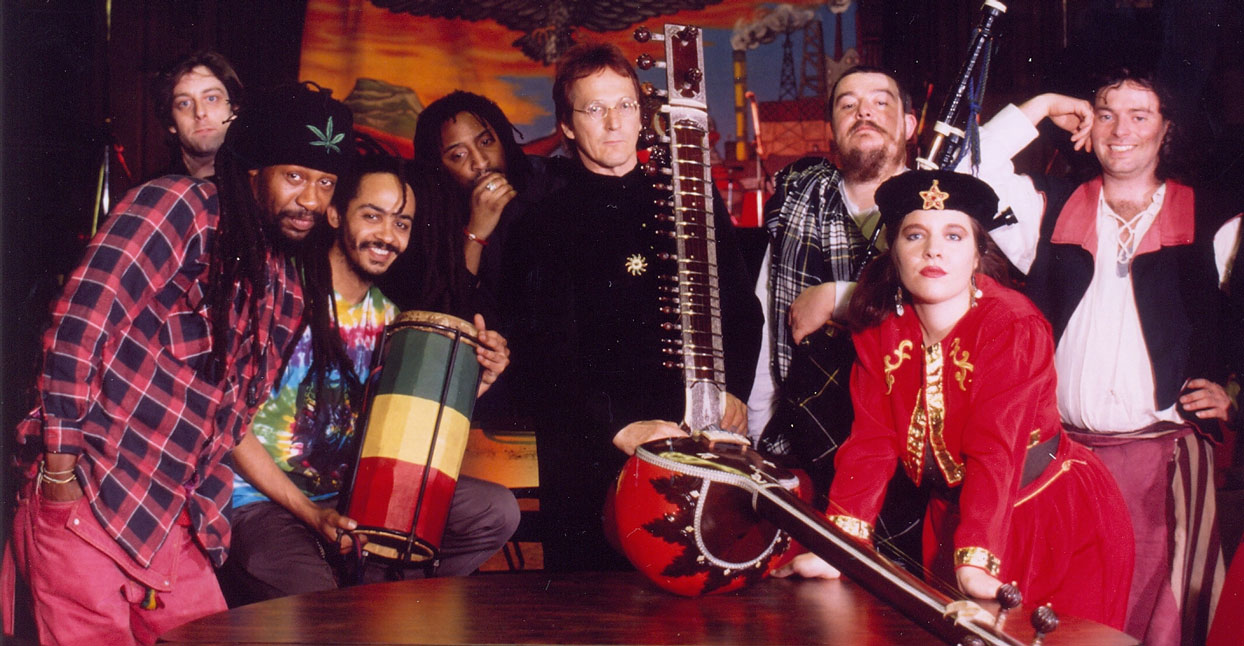

Suns of Arqa’s 1980 album Revenge of the Mozabites sounds like it came from a future without borders. Indian tabla, Celtic strings, flamenco guitars, and pounding dub basslines reverberate throughout the album—the sound of cultures and nations colliding and their music intermingling.
“I was steeped in reggae, but then I heard the music of the great sitar player Vilayat Khan and it turned me onto Indian classical music,” says Suns of Arqa founder Michael Wadada. Wadada’s music career began in Manchester, U.K., during the creative torrent of post-punk that produced other globally-minded bands like The Pop Group and PiL. Eventually, Wadada began exploring the intersection of Jamaican dub and Indian classical music with his friend Adrian Sherwood, who would later launch the legendary On-U label. In 1978, Wadada formed Suns of Arqa; two years later, the group released Revenge of the Mozabites, which was mixed by Sherwood and featured members of cult On-U band The Mothmen playing alongside various Indian masters. The album was years ahead of its time, and its East-West, dub/ambient fusion would go on to influence everyone from Temple of Sound and Transglobal Underground, to Zion Train and Afro Celt Sound System.
The group found a natural home at the WOMAD (World of Music, Arts and Dance) festival, when founder Peter Gabriel came across a copy of Revenge of the Mozabites. Held in 1982 at Shepton Mallet in Somerset, U.K., the eclectic line-up for the inaugural edition of WOMAD included jazz trumpeter Don Cherry, Indian sitar player Imrat Khan, The Drummers of Burundi, Indian violinist L. Shankar, and Echo & the Bunnymen. It was the perfect setting for Wadada’s cross-cultural fusion. “That really was a fantastic festival, as there really hadn’t been anything like it before,” says Wadada. “Collaborations were happening all the time. It was exciting.”
The festival also allowed Suns of Arqa to reach beyond the small band of followers who had discovered the group because of their On-U Sound connection, and gradually, their international influence grew. “We ended up on the same scene as bands like Transglobal Underground, and other groups that all came around 10 years after us,” says Wadada.
Suns of Arqa have continued to push the boundaries of global dub fusion, whether through an unexpected album of Leonard Cohen covers or their forthcoming dub opera Wolf of Badenoch. “What I am most proud of is that I just keep going and have been doing it for all these years now,” says Wadada.
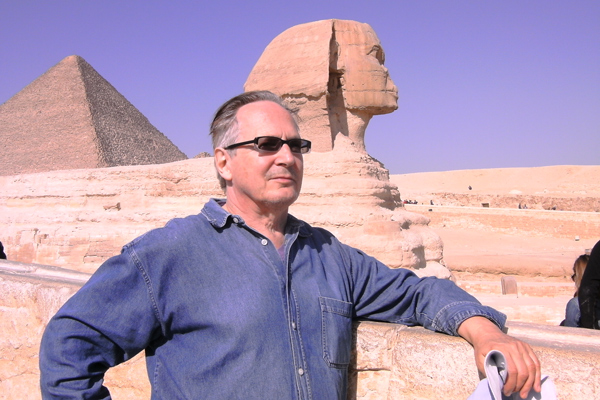
Revenge of the Mozabites
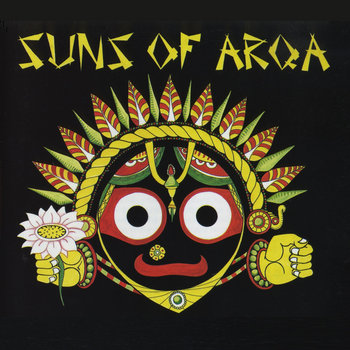

Recorded in 1979, Suns of Arqa’s debut is a global fusion of dub, electronic, folk, and country. In line with the post-punk period penchant for stage names, Michael Wadada was credited as Michael Mafia, while Adrian Sherwood took on the moniker Adran Rydims. The LP also features the Jamaican reggae drummer Style Scott (Creation Rebel, Dub Syndicate), fellow On-U Sound bassist Lizard Logan, members of The Mothmen, and a host of Indian players.
Seven

Compact Disc (CD)

Produced by Wadada, Seven was created as a “spiritual concept” album. “I wanted to bring all the religions together and do something different from just doing all this music based on different ragas,” says Wadada. For this ambitious project, Wadada called on guests like punk poet John Cooper-Clarke, surreal wordsmith Professor Stanley Unwin, and vocalist Helen Watson. Additionally, the recording includes a cast of musicians including harmonium player Kadir Durvesh, tabla player Sharda Sahai, and bassist Lizard Logan.
Kokoromochi
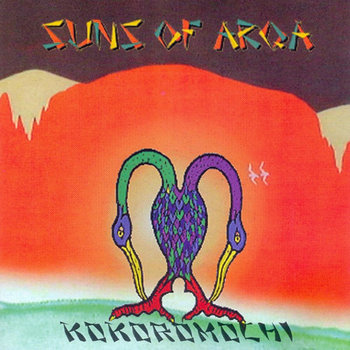
Compact Disc (CD)

Suns of Arqa released four LPs in 1992. For the first one, Kokoromochi, Wadada reached deeper into ambient dub territory. “With that LP, I just wanted to go back to making ragas,” says Wadada. It was the first Suns of Arqa LP to feature Wadada on sitar alongside bansuri player Raghunath Seth, tabla player Mick Ripsher, tambura player Aziz Zeria, and santoor player Dhevdhas Nair.
Jaggernaut Whirling Dub
The fourth 1992 release, Jaggernaut Whirling Dub was, in the words of Wadada, “The ultimate transcendental trip to ‘turn off, tune in, and enter the cosmic void.’” Jaggernaut Whirling Dub opens with “Jagnath Bhairavi” mixed to ambient dub perfection by Killing Joke bassist Youth. “He got in touch with me to say he liked my stuff and did I want anything mixing,” says Wadada. “At the time, I was making Jaggernaut Whirling Dub and I went down to London to his Brixton studios of Dragonfly Records. I really didn’t know he’d been behind all these hit records.”
Live at Band on the Wall
Released in 2013, this 1982 live recording captured one of the group’s expanded line-ups with the great Jamaican DJ Prince Far I. A year later, a gunman shot and killed Prince Far I; the release serves as a posthumous tribute. “He really loved doing ‘Brujo Magic’ live,” says Wadada. Prince Far I’s voice reaches its peak on the sadly prophetic “Throw Away Your Guns” and “What You Gonna Do on the Judgement Day.”
Know Thyself?
Based on four Indian ragas, Know Thyself was produced by Wadada and features the late Raghunath Seth, a master of the Indian flute known as the bansuri. “Raghunath was one of the greatest bansuri players who ever lived, and I really miss him,” says Wadada. The bansuri’s balm-like tones soothe the ears on opening track “Natbhairav.” The track is a meditative work that sets the tone for the three other 15-minute long tracks.
Stranger Music
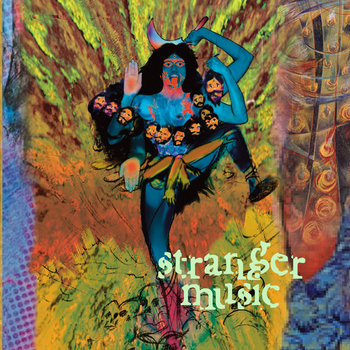

Compact Disc (CD)


Stranger Music was inspired by Leonard Cohen’s songs and writings, all of which are given the Suns of Arqa world dub treatment. “We used the tracks recorded by Bryn [Jones] for what was going to be the second collaboration with Muslimgauze,” says Wadada. Vocalist Angel Eye (Wadada’s wife Angela), South African pianist Bheki Mseleku, and the Quatre Voix choral singers helped Wadada realize his ambitions on an LP that brought an unexpected twist on the dark folk and poetry of the late songwriter. Highlights include a haunting version of “Sisters of Mercy” from Cohen’s 1967 debut Songs Of Leonard Cohen, and “Magic Is Afoot,” which takes its name from a mantra from Cohen’s second novel, Beautiful Losers.







